Indivjal Dhasmana in New Delhi
India was tarred by a string of corruption episodes irregularities in the holding of Commonwealth Games and leakage of tapes pointing to lobbying to fix ministerial berths to cite a few -- but its $1 trillion economy managed to sidestep the controversies in 2010 and appeared on course to a nine per cent growth this fiscal.

The year saw reform legislations stuck in the logjam between the government and the Opposition over constitution of a Joint Parliamentary Committee to look into the Rs 1.76- lakh crore (Rs 1.76 trillion) 2G scam.
This was over allocation of mobile telephone radio frequency at throwaway prices, which may cast its shadow over long term growth process.
. . .
Scams notwithstanding, India heads for 9% growth
Uncertain winds from outside, coupled with domestic challenges in the form of corruption issues, snowballed into a major credibility crisis for the nation, which at one point also faced a cash crunch that threatened to hit investments that are key to growth.

Towards the end, rising onion prices emerged as another challenge that along with expensive tomato and garlic catapulted food inflation to double digits, though quick-fire measures brought the prices of the edible kitchen bulb to bearable levels.
A year after the 2008 global financial crisis, Indias exports picked up on return of demand from the West and the government is hoping that outbound shipments would touch $200 billion this fiscal against $179 billion in the previous year.
But the headwinds emerging in the form of a possible contagion from the sovereign debt crisis in a few countries of Europe does not bode well for the exports sector and the overall Indian economy.
. . .
Scams notwithstanding, India heads for 9% growth
Image: The Bombay Stock Exchange.Europe accounts for 36 per cent of India's exports.
Although exports account for less than a quarter of India's gross domestic product and notwithstanding the fact that the economy is mainly domestic consumption driven, a fall in demand in the West has implications for the manufacturing sector.

Among the other areas, infrastructure remains a major problem for India, particularly power generation.
The mid-year Analysis, tabled by Finance Minister Pranab Mukherjee in Parliament, said, The very rapid 8.9 per cent growth in GDP recorded in the first half of 2010-11 raises the possibilities of a faster recovery to the pre-crisis level. . . .
It is estimated that growth in 2010-11 will be 8.75 per cent with variation of 0.35 per cent on either side."
It said the growth in the current fiscal is broad-based, which portends well for a stronger than estimated economic prospect.
. . .
Scams notwithstanding, India heads for 9% growth
The government was earlier expecting growth in the range of 8.5 per cent plus or minus 0.25 per cent.
"Now why we have shifted the goal post from 0.25 to 0.35 per cent, one of the reasons being there have been certain uncertainties particularly recovery of Euro", Mukherjee had said.
 "And Euro has relevance both from viewpoint of foreign direct investment, investment and also from external trade, particularly export," he said.
"And Euro has relevance both from viewpoint of foreign direct investment, investment and also from external trade, particularly export," he said.
After gripping Greece, Spain and Portugal through sovereign debt crisis, the financial mess has now taken toll on Ireland through a banking sector crisis.
Besides the European contagion, the stand-off between the government and the opposition over formation of Joint Parliamentary Committee to look into 2G scam may also impact the growth process, at least in the long run, since a number of reform bills are pending in Parliament.
. . .
Scams notwithstanding, India heads for 9% growth
A bill to hike FDI in insurance from 26 per cent to 49 per cent, pension reforms bill to give statutory powers to interim regulator PFRDA and banking regulation (amendment) bill to raise voting power of foreign entities in the private sector banks are crying for attention of Parliament.
 These bills were proposed during the regime of the United Progressive Alliance-I.
These bills were proposed during the regime of the United Progressive Alliance-I.
In fact, the then Finance Minister P Chidamabaram had asked for political space to carry out these reform bills, but that time the Left came in the way.
After the Left broke away, the insurance bill was tabled in the Rajya Sabha. But since then, not much has moved forward on the reforms front, be it insurance bill, retail or the indirect taxes front.
. . .
Scams notwithstanding, India heads for 9% growth
The Indirect tax reforms in the form of goods and services tax has already missed one deadline -- April 1, 2010 -- and is also unlikely by April 1, 2011.

Now, the Finance Minister expects to roll it out from April one, 2012 when direct tax reforms in the form of direct taxes code are scheduled to be carried out.
Reforms did happen in capital markets in terms of public shareholding norms, but they were diluted later in favour of public sector units.
The year that also saw a tussle between regulators, as well as regulators and the government, did witness some reforms.
They were in newer version of insurance policies called ULIPs after a turf war broke out between market regulator SEBI and insurance watchdog IRDA as to who should regulate ULIPs.
. . .
Scams notwithstanding, India heads for 9% growth
ULIPs are non-traditional plans that do not have assured returns and their value is dependent on the capital markets.
Ultimately, the government gave the right of regulation of these products to IRDA and established a joint committee of the Finance Ministry and regulators to check inter-regulatory issues in future.

Another reform that is on the way is the establishment of Financial Stability and Development Council, which will prevent inter-regulatory issues as well as help mitigate the impact of another global financial crisis on Indian economy, if it strikes again. Currently, inter-regulatory issues are sorted out by a body called High Level Coordination Committee among financial sector regulators.
The issue of corruption in 2G scam and leaked Niira Radia tapes over lobbying for the telecom ministry also have the potential to be roadblocks in the growth story.
. . .
Scams notwithstanding, India heads for 9% growth
Recently, HDFC chairman Deepak Parekh said that the leaked tapes has brought risks in neutralising the country's growth.
He also said the government should work as a team to get things back on track. <font><IMG height=91 src="http://im.rediff.com/news/2010/dec/yearend-logo3.gif" width=103 align=right border=0></FONT>
"The big boys in the government are pulling in different directions and not working as a team. They are following their own agenda, own departmental agenda, not looking at a broader picture, the PM has to get that organised," he said.
Then there are differences between the strict environment norms that some say will pull down the economic growth rate.
Ministry of Environment and Forests has defined 'no-go' areas for mining as those that have over 30 per cent gross forest cover or over 10 per cent weighted forest cover, with mining being allowed only in the 'go' areas.
. . .
Scams notwithstanding, India heads for 9% growth
Because of this, 206 coal blocks across 4,039 sq km in nine coalfields, having a production potential of 660 million tonnes were designated as 'no go' areas.
During 2010, the government got over Rs 65,000 crore (Rs 650 billion) more than the budget estimates through auction of spectrum for high speed mobile and broadband services. <font><IMG height=91 src="http://im.rediff.com/news/2010/dec/yearend-logo3.gif" width=103 align=right border=0></FONT>
It also got Parliament nod to spend close to this much amount over Budget estimates in two supplementary demands for grants.
Also, helped by Coal India and others, the government is on the way to garner Rs 40,000 crore (Rs 400 billion) through disinvestment which will be used for financing its social sector needs.
The Indian economy, after all, seems to be in robust shape, but challenges like corruption, high food inflation, headwinds from overseas, threat of reforms taking backseat etc are knocking at the door and they can be ignored only at our own peril.

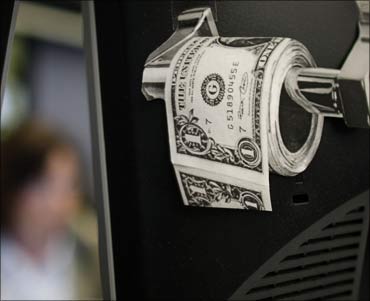
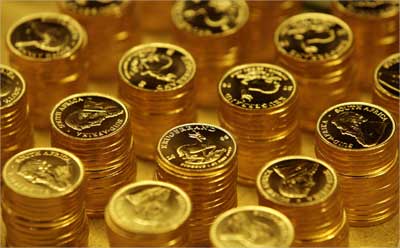
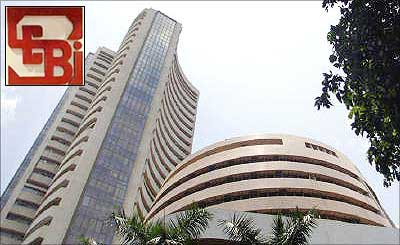


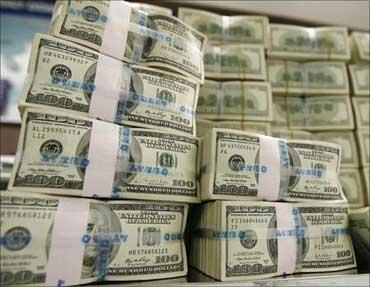
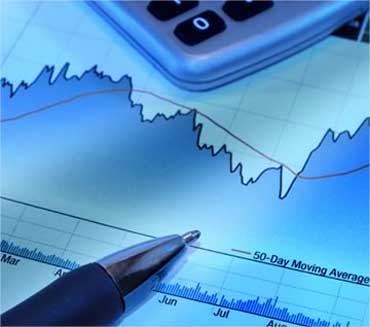

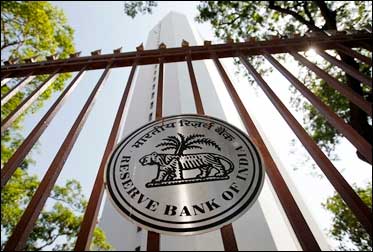
article